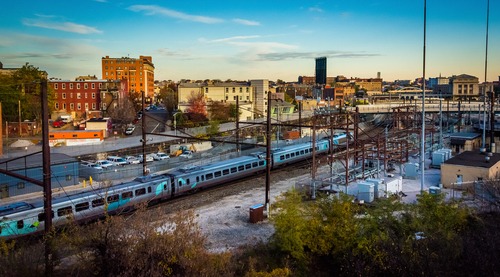
A new study from John Hopkins University has found that faster commuter trains between Baltimore and Washington, D.C. could positively impact Baltimore’s economy.
Part of the University’s “21st Century Cities Initiative”, the faster trains might spur neighborhood redevelopment and provide Baltimore’s residents with easier access to higher-paying jobs in D.C., the study found. The research outlines how government investment in express services by Maryland Area Regional Commuter trains could benefit nearly 10 million people in the region.
“There are few pairs of neighboring cities in the United States such that one city is booming while the nearby city is struggling,” states the report, co-authored by Mac McComas, senior program manager at 21st Century Cities Initiative. “Just 40 miles to the north of economically booming Washington, D.C. lies economically struggling Baltimore City.”
The closeness of the two cities supports infrastructure investment in “cross-city transit” because it could help residents in both cities, the report said. As part of that, faster train service would provide D.C. residents with more affordable housing options in Baltimore while opening up a lucrative job market in D.C. to Baltimore residents.
The study said Maryland could either convert its existing local MARC trains to express schedules or add a new train line with limited or non-stop service.
Additionally, the study authors noted, the timing may be right for the project politically. President Joe Biden, a longtime champion of train service, has said he hopes to implement his $2 trillion infrastructure plan soon.